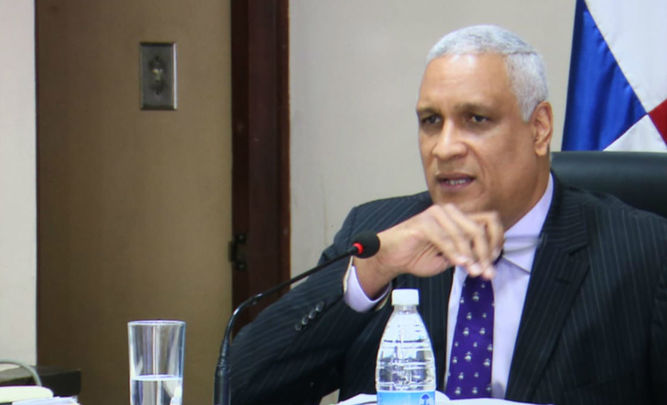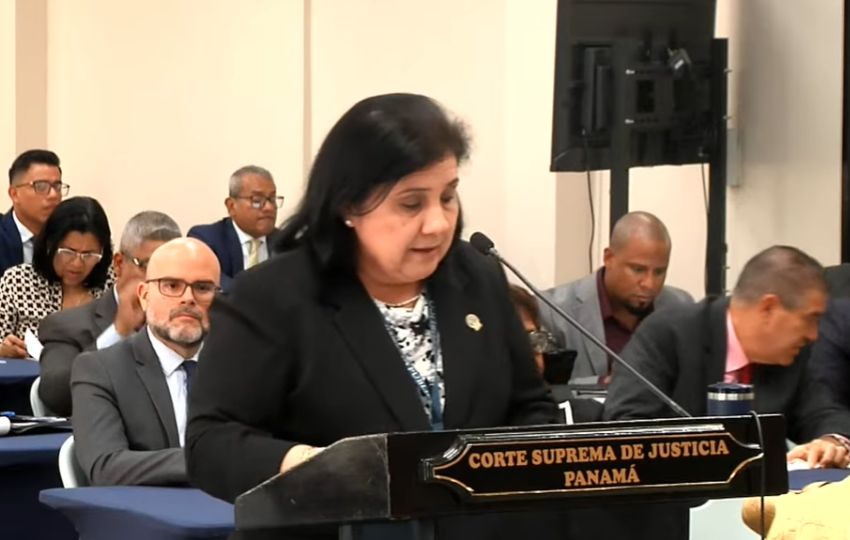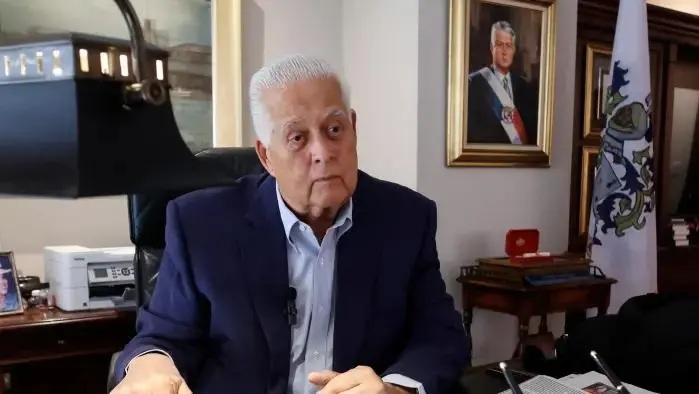Judge reprimands Martinelli defense stalling tactics

The magistrate judge of guarantees Jerónimo Mejía rejected three new ploys by the defense of ex-president Ricardo Martinelli and issued a reprimand for lack of procedural loyalty and delay of the hearing on Monday, July 9.
The prosecuting judge, Harry Diaz, read for an hour his indictment against Martinelli for illegal wiretapping. and embezzlement for which he is asking a 21-year jail term and announced the presentation of 74 proofs testimonials and documentaries, among which he highlighted interviews with President Juan Carlos Varela and former members of the Council of National Security, among others.
At the end of the hearing, Martinelli’s defense presented a warning of unconstitutionality against the fourth paragraph of the Article 347 of the Criminal Procedure Code. Mejía denied the appeal because it was untimely and because it was already judged.
He said that the defense disrespects article 18 on procedural clarity and 63 on the duties of judges. Then he sent a message to the defense:
“I urge you that from now on you present situations that are worth discussing “.
He sustained the indictment against the former president.
The private accusation of Rosendo Rivera, victim and former lawyer of Martinelli was also read into the proceedings.
Earlier, Judge Mejía denied three incidents of alleged violations of the human rights of Martinelli
In the first Roniel Ortiz, defense lawyer said that notes handed over the US Marshals who extradited Martinelli were in English and were never translated. Judge Mejía ruled that it was not demonstrated that the non-translation of these documents constitutes a violation of the human rights of the defendant,
Then Ortiz argued that his client was denied any communication an ex officio defender was not appointed. Mejía concluded that it does not represent a violation of the rights of Martinelli.
The third incident raised by Ortiz alleged that Martinelli, because of his position as President must be in the custody of the Protection Service Institutional (SPI), and not the General Directorate of the Penitentiary System.





